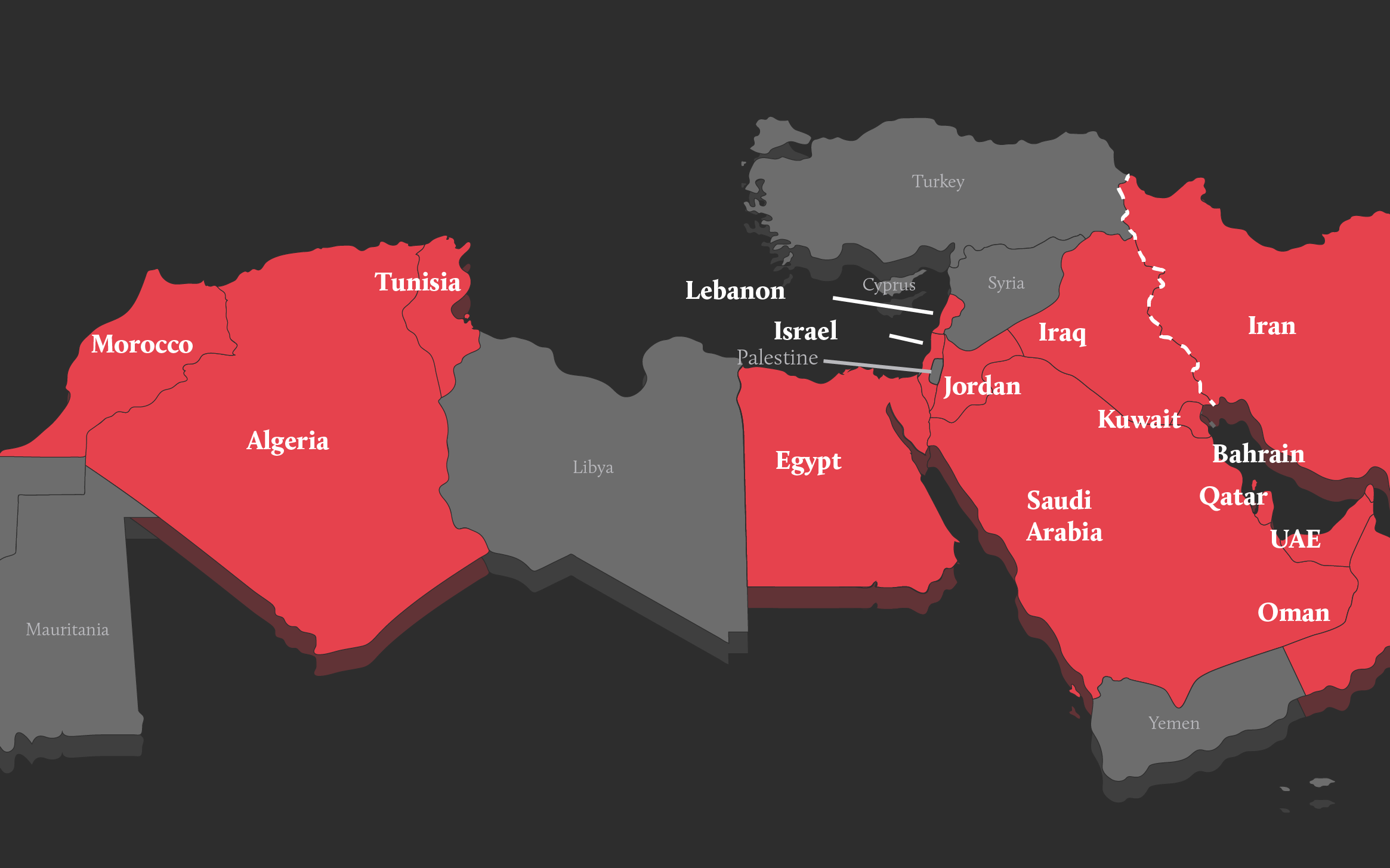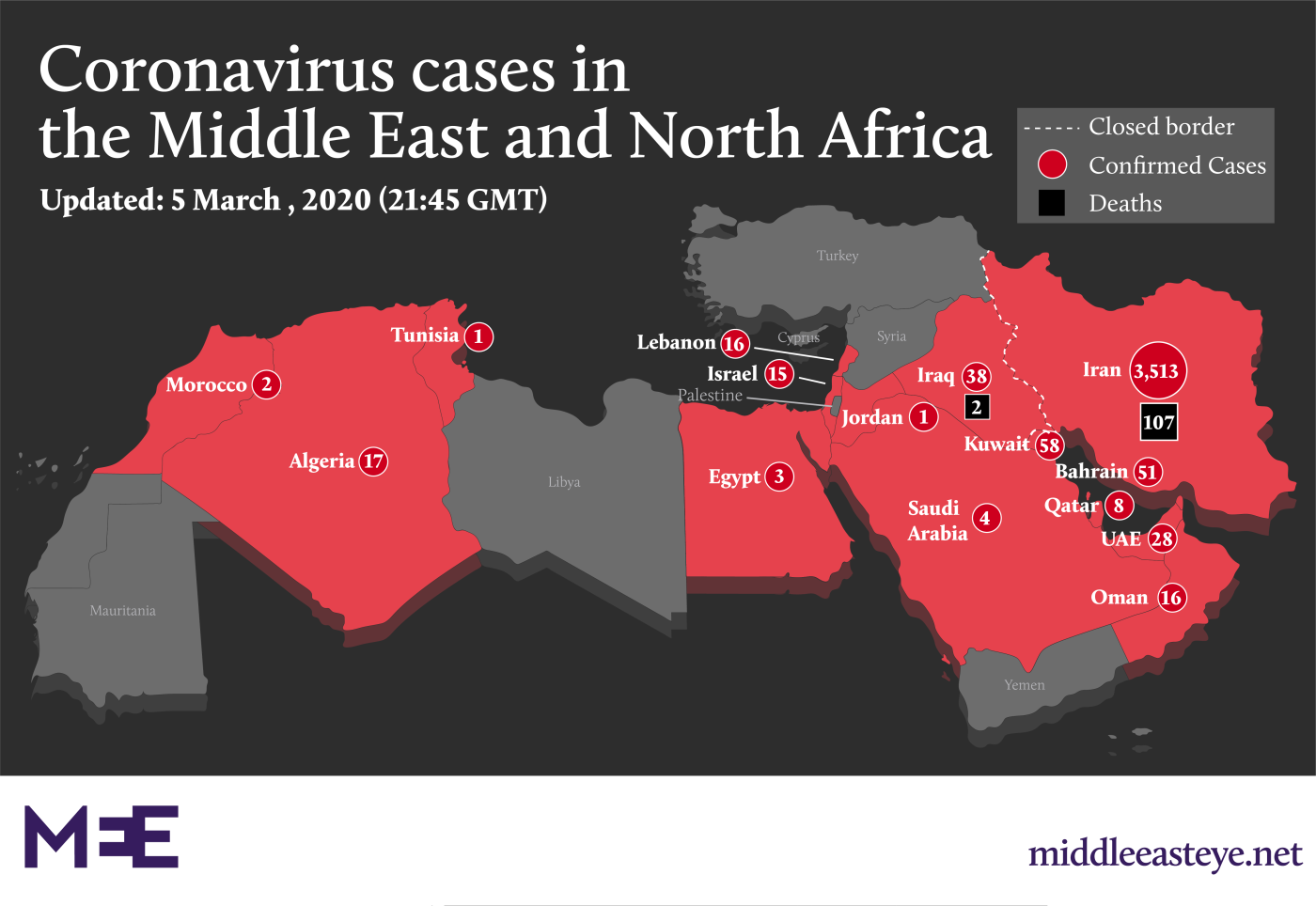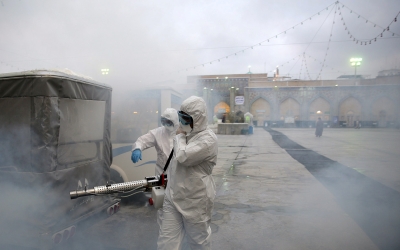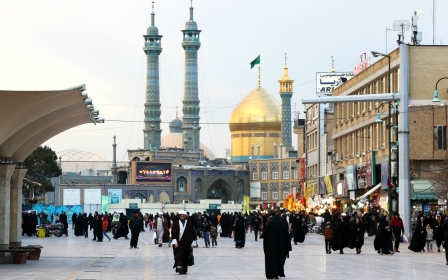Coronavirus in the Middle East and North Africa: A country by country guide

Editor's note: This article was last updated at 21:45 GMT, 5 March
Countries across the Middle East and North Africa have begun recording more and more coronavirus cases, and scrambling for a response.
The outbreak of the virus - officially known as COVID-19 - originated in China in December, where it has reportedly killed more than 2,500 people.
The World Health Organisation (WHO) reported in February that 80 per cent of COVID-19 cases report only mild, flu-like symptoms, and just 2 per cent of cases have resulted in death. While COVID-19 has a much lower death rate than epidemics of similar viruses such as SARS or MERS, it has spread far wider.
Middle East Eye takes a look at the countries it has appeared in, and their response:
New MEE newsletter: Jerusalem Dispatch
Sign up to get the latest insights and analysis on Israel-Palestine, alongside Turkey Unpacked and other MEE newsletters
Algeria (17 cases)
Algeria confirmed its first case of the coronavirus on 25 February, with the health ministry saying an Italian man who arrived in the country on 17 February had been put into quarantine.
On 4 March, the country's health ministry updated the number to 17. The figure included 16 people from the same family in the Blida province, about 30km south of the capital Algiers.
Bahrain (51 cases)
Bahrain's health ministry reported its first case of the coronavirus on 24 February after a "citizen arriving from Iran was suspected of having contracted the virus based on emerging symptoms".
The patient was transferred to a medical centre for "immediate testing", which proved positive for the infection, the ministry added.
Manama has banned its citizens from travelling to Iran because of the coronavirus.
On 5 March, the health ministry raised the total number of infected patients to 51.
Egypt (3 cases)
Egypt's health ministry confirmed its first case of the coronavirus on 14 February, with Health Ministry spokesman Khaled Megahed saying the foreign national had tested positive for the virus without any symptoms.
The WHO later confirmed that the man was recovering and was no longer a carrier of the illness, but would remain in quarantine for the mandated 14 days.
A second case was reported 1 March, with the health ministry identifying the patient as a foreigner.
Iran (3,513 cases, 107 dead)
Iran is the worst-hit country outside of China, with at least 107 people dead due to the coronavirus.
Five of its seven neighbours have now closed their borders with the country: Iraq, Turkey, Afghanistan, Pakistan and Armenia.
Several countries in the region confirmed their first patients had all previously been in Iran.
A four-person team from the World Health Organisation was sent to Iran on 2 March to review the country's measures for dealing with the outbreak.
On 29 February, Iranian media reported that one lawmaker, elected in Iran's 21 February election had died of the coronavirus.
An adviser to Supreme Leader Ali Khamenei also died and Vice President Masoumeh Ebtekar and Iraj Harirchi, the deputy health minister tasked with managing Iran's response to the outbreak, have also fallen ill with the virus.
The Islamic Republic issued a ban on Chinese citizens from entering the country.
Iraq (38 cases, 2 dead)
Iraq reported its first case of the coronavirus on 24 February. Health officials said the patient was an Iranian theology student living in the southern city of Najaf.
All students studying at the same religious seminary were quarantined, while one of the city's most important religious sites was temporarily closed to pilgrims while it was disinfected.
On 4 March, Iraqi authorities reported two deaths - a 63-year-old male in Sulaimaniya province and a female who died in Baghdad.
Israel (15 cases)
Israel reported its first case of the coronavirus on 28 February, including a person who was in close contact with a man who tested positive after visiting Italy.
Israeli Interior Minister Aryeh Deri added Italy to a list of countries from which travel for non-Israelis was banned.
The list includes China, Hong Kong, Macau, Thailand, Singapore, Japan and South Korea.
Earlier this month, the country sent 180 South Korean tourists back home and closed travel to and from South Korea.
According to Israeli media, the government was considering quarantining another 200 South Koreans at a military base.
Jordan (1 case)
Jordan confirmed its first case on 2 March and said the infected patient had flown from Italy, according to the state-run Petra News agency.
Kuwait (58 cases)
Kuwait's health ministry reported its first case of coronavirus on 24 February.
The majority of the cases are either people who had travelled to Iran or been in contact with people who were there, the ministry said.
Lebanon (16 cases)
The first case of coronavirus was confirmed in Lebanon on February 21 after a woman arrived from Iran.
Lebanon announced on 28 February it would bar entry to non-resident foreigners from the four countries most affected by the coronavirus outbreak.
The country will deny entry to people arriving from China, South Korea, Iran and Italy, the state news agency reported, without saying when the measure would come into effect.
Morocco (2 cases)
Morocco's health ministry reported its first coronavirus case on 2 March, from a Moroccan man living in Italy.
The man is currently receiving health care at a hospital in Casablanca and his health condition is not critical, the ministry said in a statement without further details.
Oman (16 cases)
Oman's health ministry reported its first two cases of coronavirus infections on 24 February, Oman TV said.
Two Omani women diagnosed with the illness after visiting Iran, it said. They were reported to be in a stable condition.
Oman's civil aviation authority has halted all flights between the sultanate and Iran.
Qatar (8 cases)
Qatar's health ministry reported its first case of the coronavirus on 29 February, a 36-year-old Qatari man who had recently returned from Iran.
Two cases were confirmed on 1 March and the individuals were placed under full quarantine, the ministry said.
Four cases were reported on 2 March. The infected patients included two Qatari citizens and two domestic workers accompanying them in travel.
And a ministry statement on 3 March said a Qatari national recently evacuated from Iran was also infected.
Saudi Arabia (4 cases)
Saudi Arabia's health ministry announced its first case of the new coronavirus on 2 March, according to the state news agency. The ministry said the infected person had come from Iran through Bahrain.
In February Riyadh announced measures to stop the virus reaching the country by temporarily suspending visits for the Umrah religious pilgrimage and visits to the Prophet's mosque in the city of Medina.
It also suspended travel from countries that have existing coronavirus outbreaks.
Tunisia (1 case)
Tunisian authorities confirmed its first case of the new coronavirus on 2 March. The health ministry said the patient was a Tunisian man.
UAE (28 cases)
The UAE recorded its first cases of the virus on 28 January when four members of a Chinese family were diagnosed with the disease.
The final two stages of the UAE Tour, a bicycle tournament which featured some of the world's leading riders, were cancelled on 27 February due to two Italian participants testing positive for coronavirus.
The Abu Dhabi Sports Council did not identify anyone but said that all of the race participants, staff and organisers were being screened for the flu-like virus.
On 24 February, the UAE banned all travel to Iran and Thailand over fears about the spread of the virus.
Middle East Eye delivers independent and unrivalled coverage and analysis of the Middle East, North Africa and beyond. To learn more about republishing this content and the associated fees, please fill out this form. More about MEE can be found here.







